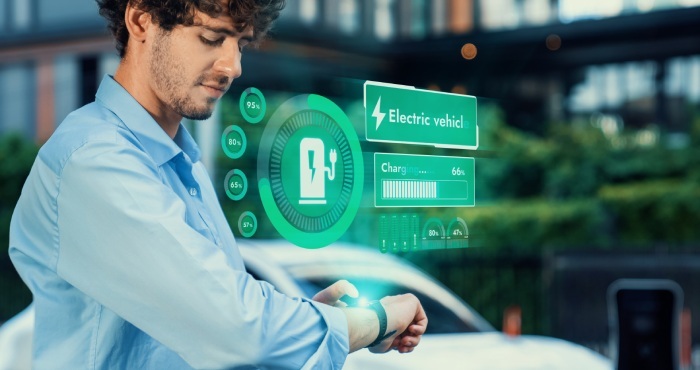As electric vehicles (EVs) become increasingly popular, consumers are facing a new set of challenges: issues related to software. Unlike conventional internal combustion engine (ICE) vehicles, EVs depend on advanced software to oversee battery management, driving capabilities, safety protocols, and entertainment features. When these software systems fail, the repercussions can extend beyond mere inconvenience to affect both vehicle safety and overall performance.
If you’re dealing with persistent software glitches in your EV, you might be asking yourself: Do you qualify for Lemon Law protection? The answer is often yes, but it hinges on specific circumstances. Let’s delve into how Lemon Laws pertain to software problems in EVs, identify indicators that may support a legitimate claim, and outline the actions you should take to safeguard your rights.
Understanding Lemon Law: A Quick Overview
Lemon laws exist to safeguard consumers who buy faulty vehicles, with California lemon law lawyers leading the charge in upholding these protections. Although each state has its own specific Lemon Law regulations, the fundamental idea is consistent: if a new vehicle—sometimes even a used one—has major flaws that impact its usability, worth, or safety, and the manufacturer fails to fix the problem after a reasonable number of attempts, the buyer may qualify for a refund, replacement, or financial settlement.
Historically, California lemon lawyers have dealt with cases involving mechanical failures like engine breakdowns, transmission troubles, or brake issues. However, as electric vehicle (EV) technology evolves, software-related problems are now increasingly identified as defects under California’s consumer protection statutes, leading to a surge in Lemon Law claims.
How Software Issues Impact Electric Vehicles
Contemporary electric vehicles rely heavily on software as much as they do on physical components. Below are some prevalent software-related issues reported by electric vehicle owners:
Battery Management System (BMS) errors:
Some owners have encountered inaccuracies in battery readings or issues with charging cycles. Such errors can severely impact the vehicle’s range and overall dependability.
Malfunctions in autonomous driving or driver-assist features:
Users have reported instances of unanticipated acceleration, braking, or erratic steering behavior while utilizing these features. These malfunctions can create significant safety hazards on the road.
Connectivity issues:
Complaints regarding smartphone connectivity, GPS navigation, Wi-Fi access, or problems with over-the-air updates are quite common. These connectivity failures can disrupt user convenience, navigation accuracy, and vital vehicle communications.
Infotainment system failures:
Numerous electric vehicle owners experience frequent freezing of touchscreens, system crashes, or unexpected reboots. Such issues often interfere with climate control functions, media playback, and critical vehicle settings.
Errors in warning systems:
Drivers may receive false warnings about tire pressure, battery temperature, or braking systems, leading to confusion. Frequent false alarms can cause owners to overlook genuine alerts, potentially compromising safety.
New issues arising from software updates:
After certain software updates, some vehicles may encounter new problems, such as loss of features or the emergence of additional bugs. These post-update complications can diminish the vehicle’s performance and lead to owner frustration.
When these issues persist despite multiple attempts at repair, they can greatly affect the vehicle’s safety and resale value, making them legitimate grounds for Lemon Law claims.
Are EV Software Issues Covered by Lemon Law?
In many states, the response is affirmative—provided that the software flaw:
- Significantly hinders the vehicle’s usability, worth, or safety, and
- The manufacturer or dealer has had a fair number of opportunities to rectify the issue but has not succeeded.
This criterion aligns with the typical stipulations for standard Lemon Law claims. The crucial factor is proving that the software problem is not merely a nuisance but has a substantial impact on the ownership experience.
For instance:
- A touch screen that sporadically freezes could be viewed as a minor hassle.
- Conversely, a battery management system that inaccurately calculates the vehicle’s range, resulting in a driver being stranded, poses serious concerns regarding the vehicle’s functionality and safety.
California, recognized for having robust Lemon Laws, explicitly permits claims related to electronic or software defects when they significantly influence the vehicle’s usability, value, or safety. Similarly, states such as New York, Florida, and Texas extend protections to electric vehicle owners through their Lemon Laws.
When Software Issues Might NOT Be Covered
Not every software issue falls under the protection of Lemon Laws. Instances where coverage might be refused include:
- Minor annoyances, such as apps that load slowly.
- Mistakes made by the user, like not updating software correctly.
- Problems that are fixed with a software update after just one attempt at repair.
- Modifications made after purchase that disrupt the vehicle’s software.
Moreover, Lemon Laws typically have specific timeframes or mileage restrictions, for example:
- In California, the limit is 18 months or 18,000 miles.
- In Texas, it’s 24 months or 24,000 miles.
If you experience software issues beyond these limits, you may need to seek alternative solutions, such as filing breach of warranty claims.
Real-World Examples of EV Software Lemon Law Cases
Numerous instances from the real world demonstrate how software malfunctions have resulted in Lemon Law claims:
1. Tesla Autopilot Glitches
Many Tesla owners have experienced ongoing issues with the Autopilot system, such as unexpected braking (commonly referred to as “phantom braking”) and unpredictable lane-keeping behavior. When Tesla was unable to rectify these problems despite several service appointments, numerous owners successfully filed claims under Lemon Law.
2. Ford Mustang Mach-E Software Glitches
In 2022, Ford recalled the Mach-E due to issues with battery contactors overheating. Some drivers reported losing power while on the road. If dealerships could not resolve this issue after multiple attempts, affected customers were able to seek protection under Lemon Law.
3. Chevrolet Bolt Recall Issues
The Chevrolet Bolt underwent significant recalls due to battery software flaws that posed potential fire hazards. Although GM provided solutions, some owners continued to experience recurring battery problems and chose to pursue Lemon Law options, resulting in buybacks or replacements.
These cases illustrate that manufacturers recognize that software problems can be considered material defects, and California Lemon Law attorneys are increasingly succeeding in these types of cases.
How to Protect Your Rights if You Suspect a Lemon
1. Record All Issues
Meticulously document every software-related problem, noting the date, symptoms, and how it affected your driving. Whenever feasible, take photos or videos to bolster your case.
2. Allow the Manufacturer to Fix It
Bring your electric vehicle to an authorized service center for each issue and keep all service documents and receipts. Make sure these records specify the software problem, even if no repairs were made.
3. Remain Tenacious
Stay engaged by checking in on repair efforts and advocating for necessary software updates or fixes. If the dealer or manufacturer overlooks your concerns, make sure to log those discussions and their responses as well.
4. Seek Legal Advice from a Lemon Law Specialist
Contact a Lemon Law attorney, many of whom provide free initial consultations and operate on a contingency fee basis. They can evaluate if your situation qualifies and assist you in obtaining a refund, replacement vehicle, or settlement.
What Compensation Can You Receive?
If your claim is successful, a San Diego Lemon Law lawyer can help you secure a full vehicle repurchase, meaning you would receive a refund of your payments (minus a mileage offset). You may also be eligible for a replacement vehicle of similar value or cash compensation if you prefer to keep your EV but want reimbursement for its reduced worth.
In most cases, the manufacturer is required to cover your attorney’s fees, so you pay nothing out-of-pocket for legal representation. A skilled San Diego Lemon Law lawyer will guide you through the process to maximize your recovery and ensure your rights are fully protected.
The Future of Lemon Law and EVs
- National legislators have initiated talks aimed at establishing uniform standards for the reliability of electric vehicle software. The goal of these standards is to ensure that software issues are regarded with the same seriousness as mechanical malfunctions.
- Numerous states are considering revisions to their Lemon Laws to explicitly include defects related to electronics and software. This would provide consumers with more definitive protections when confronting technology-related challenges in their cars.
- Car manufacturers are under growing pressure to enhance their software quality control practices. Strengthening these protocols is becoming essential for preserving consumer confidence and adapting to changing legal requirements.
- Consumers should feel empowered to insist on vehicles that are both safe and fully operational. Regardless of whether an issue stems from the engine or the software, they deserve to expect dependable performance.
Electric vehicles hold great potential, but they also bring about unique challenges. If your EV is plagued by ongoing software problems that significantly affect its functionality, worth, or safety, you could qualify for Lemon Law support.
Avoid accepting frequent trips to the dealership, ambiguous reassurances, or unmet commitments. Keep a detailed record of the issues, demand adequate repairs, and reach out to an experienced Lemon Law lawyer if needed.
As we embrace the new age of electric mobility, your rights as a consumer remain robust, just as they were with conventional cars—and they are adapting to address the demands of future technologies.







